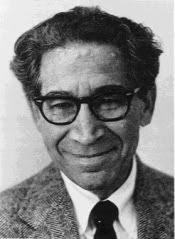
Festinger
That might explain why they "mad up" the resurrection if that's what happened, but it doesn't explain why others believed it. The basic arguments about the necessity of a known empty tomb in order to procure belief obtain here. So the use of the theory doesn't really explain anything. Furthermore, apart from the Apostles the committment senero is backwards. The committment for most of the early chruch came before their hopes dashes, not after. First they believed the resurrection then they committed all their goods to live communally then the end of the world failed to come. By that time the theory of the resurrection part of their initial commitment so that doesn't even explain most of them.
I have put in ever possible keyword to find a response to a particular argument, but nothing has come up. That argument is chapter 12 in Loftus's "The Christian Delusion." That chapter argues that Jesus was a doomsday prophet who predicted that the world would end very soon. When the world did not end, and he was crucified, the apostles used cognitive dissonance to come up with the resurrection story. I have searched all over this blog for a response to that argument and have found nothing. Therefore I must conclude that there is no response to the argument.
6/27/2011 06:27:00 PM
I haven't read Lofuts book, and I don't mean to insult you, but I have to assume your rendition of what he says is accurate so I will assume so.
First of all, the eschatology of the early is clearly put into Jesus mouth. Was Jesus really saying the world will end soon, or was the early chruch expecting to hear it so they didn't see anything wrong reflecting their expectations in the spin they put on his words?
Remember Jesus is probably the only such prophet who actually admitted he didn't know the day or the hour. Maybe he was also hinting that he didn't know the century.
The idea that it was the failure of the world to end that triggered the resurrection story is pretty illogical considering the vast body of testimony to the fact that they preached he resurrection from the earliest movement. See Helmutt Koester Ancinet Christian Gospels(1992) where he demonstrates that the story of the empty tomb circulated in writing as early as AD 50.
see my article in Holdings defending the Resurrection where I defend Koester's view and harmonize it with Raymond Brown's view.
Cognitive dissonance is not something one uses, it's not a game plan or a warranty, it's something that uses you; a psychological process. It doesn't make any sense to say the failure of the eschatology expectations was the cause of their cognitive dissonance and not Christ's death itself.
There's no reason to assume and no way to prove that cognitive dissonance would issue force in the form of belief in the resurrection and not in the eschatology expectations. Although such expectation were hart of the Judaism of that day, it could as easily be that the communal living and the immediate expectations of Messiah's return were part of the reaction to his death, not "making up" the resurrection.
There's not doubt they had some cognitive dissonance, it's a natural psychological reaction. You can't control or predict what will result form it. Even Lotus's book writing could be cognitive dissonance in reaction to his lose of faith.